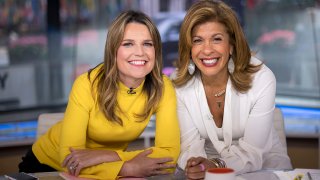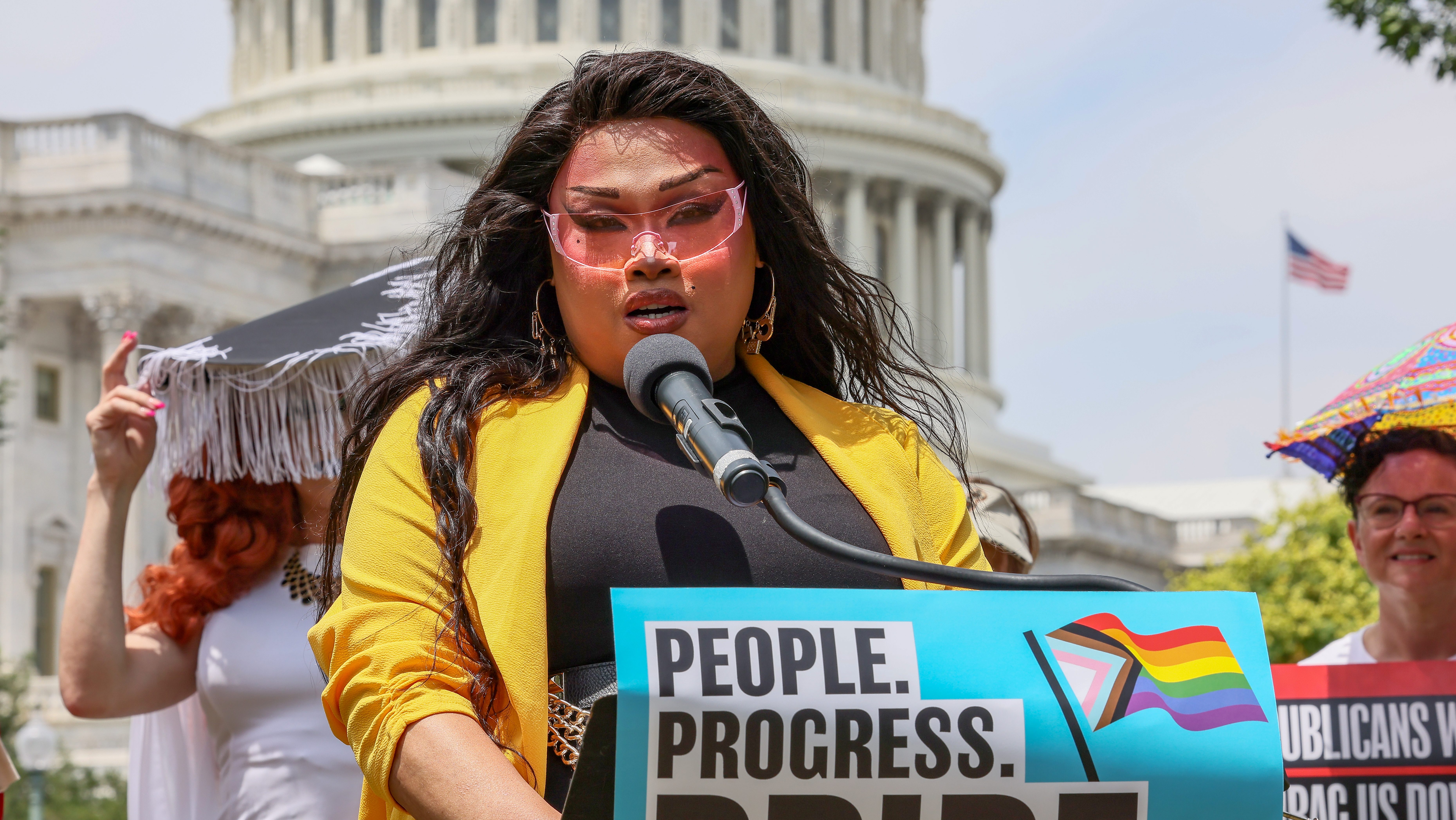
For all the planning that went into “CBS This Morning” putting on a broadcast with its anchors working remotely, no one thought about the pillow.
It sat — slightly crookedly — on a chair behind Gayle King in the makeshift studio set up in her family room. And that pillow, every time the camera caught it, was driving one viewer nuts.
Stream San Diego News for free, 24/7, wherever you are with NBC 7.
More than most news programs, morning shows on ABC, CBS and NBC thrive by fostering a sense that their personalities are a chummy family. Now, due to coronavirus restrictions, those family members appear onscreen in dislocated boxes, and invite viewers into their homes instead of vice versa.
The least they can do is straighten out the furniture.
Get top local San Diego stories delivered to you every morning with our News Headlines newsletter.
“We're doing the best we can,” King replied on-air to the pillow-obsessed fan.
“CBS This Morning” was first evicted from its New York studio on March 12 after someone in the building came down with the coronavirus, but it resisted breaking up its team of King, Tony Dokoupil and Anthony Mason. They traveled to a studio in Washington, D.C. for two days, returned to CBS headquarters then did a week at a nearby theater where Stephen Colbert films the “Late Show” when he has an audience.
But after Mason began to self-quarantine after being exposed to someone who had exhibited coronavirus symptoms, work at home became a reality for CBS News.
Entertainment News
Each morning show had its own trigger. Because past health issues compromised Robin Roberts' immune system, her doctor ordered ABC's “Good Morning America" anchor out of New York. A cold first forced the “Today” show's Savannah Guthrie into a basement in upstate New York.
“There's an intimacy to morning television, and what I'm very proud of is that we've been able to stay a family,” Roberts said. “Yes, we may be in different boxes on the screen and not sitting next to each other, but we're still connected.”
Roberts said she senses viewers looking over her shoulder at framed pictures in the background of the daily camera shot from her Connecticut home, trying to figure out who they are.
“We're opening up our homes,” she said. “We're being very vulnerable in sharing so much of ourselves and people that are at home and missing their colleagues, they're doing the same thing. It's very relatable.”
On NBC's “Today” show, Carson Daly has shown off his new baby and submitted to a homemade haircut.
Roberts' “GMA” partner, George Stephanopoulos, started worked from home after his wife, Ali Wentworth, came down with COVID-19. With the responsibility of taking care of her and their children while watching their own health, he's looked utterly exhausted.
NBC's Al Roker, delivering weather forecasts from his kitchen with his backyard in view, has one of the more interesting backdrops. So is the knick-knack filled dining room where Mason sits, dominated by a large painting of the Piazza San Marco in Venice.
With a large monitor behind him, Dokoupil's location seems indistinguishable from a regular studio, in part because he has to share a workspace with his wife, NBC News' Katy Tur. Guthrie has gone from drab — an ugly blue backdrop — to arguably deceptive, a background photo of Rockefeller Center. Her backing is a fluid situation.
The basement isn't exactly picturesque, but it's the best place to set up the studio, she said.
“The problem with my kitchen is that it's teeming with toddlers,” she said. “It's better in the basement.”
Not every personality works from home. Guthrie's partner Hoda Kotb has largely kept to the show home off Rockefeller Plaza, where the crowds that used to peer into the streetside studio are now gone. When she broke down following a recent story about New Orleans, Guthrie was too far away to offer a hug. It would have violated social distancing protocol, anyway.
“Everybody wants to have the optimal working conditions,” King said, “and the optimal working conditions are to gather at that table ... When it's no longer feasible or no longer smart to do that, you have to pivot. This story is such a moving target.”
She's learned she's not the work-at-home type. King is about to become even more alone; she's had help from a technician but that will end when CBS installs a robotic camera.
“I know the importance of doing it this way," she said. "The social distancing is no joke ... If any one of us goes down, all of us go down.”
The intense story has also forced content changes on the shows, not just physical ones. Lighter, celebrity segments are largely gone. From her basement, Guthrie has interviewed Govs. Andrew Cuomo and J.B. Pritzker, Trump administration medical experts Jerome Adams, Deborah Birx and Anthony Fauci, New York City Mayor Bill De Blasio, Fed Chairman Jerome Powell and the heads of Ford and Johnson & Johnson.
While news prevails, the shows want to highlight heroes and do service journalism. A segment about cleaning groceries got 3 million hits on Roberts' Facebook page. As one producer said, “I could visit every emergency room in the country every day, but even I wouldn't want to watch that.”
Maintaining a balance is important, said “Today” executive producer Libby Leist.
“Sometimes it's how you tell the story,” Guthrie said. “I think we're trying to have a touch that is human and, for lack of a better word, gentle, while also being rigorous, straightforward and honest.”
___
This story corrects that Antony Mason began to work at home after being exposed to someone who exhibited coronavirus symptoms, instead of someone who tested positive.



